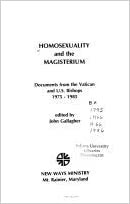If you are the parent of a LGBTQ child, I hope that the following thoughts, which I’ve accumulated as a psychotherapist over the past 35 years, can help resolve some misunderstandings, and help you and your child enjoy a more loving relationship. See what works for you and leave the rest behind.
In his beautiful book Domestic Monastery, the Canadian theologian Ronald Rolheiser, O.M.I., writes: “To be a mother or a father is to let your dreams and agenda be forever altered.” For me, this quotation reflects a fundamental truth that, if not adopted by parents, will significantly decrease any chance for change in the relationship with their LGBTQ child.
The truth is: Our children do not belong to us. They are free agents and their life journey is theirs alone. The more a parent tries to dictate to their child what direction their life should take, the more a power struggle will ensue. This is ultimately self-defeating and counterproductive, as it doesn’t allow for the generation of new information and ideas.
It’s not about understanding, but acceptance. This is a crucial insight towards fostering reconciliation. Does anyone ever completely understand another person? People are complex and complicated. We are paradoxical and contradictory. We sometimes behave against our better judgment and engage in self-defeating and harmful behaviors.
Most interpretation of human behavior is speculation anyway. We strive towards understanding because we have a desire for certainty. Perhaps we would be better off if we were more humble, if we approached our children with curiosity, not certainty. As my hero St. John of the Cross wisely advised, “Learn to understand more by not understanding, than by understanding.”
Remember, no one is an expert on another person. By over-focusing on your child, you can easily avoid examining your own issues.
Parents may often assume they know what their children are thinking without sufficient evidence of their thoughts. Not knowing what your child is actually thinking can lead to an escalation in miscommunication and conflict. Instead of assuming, check your hunch with your child by simply asking them if your assumption is correct and, if not, what they are thinking. Remember, no one is an expert about another person. By over-focusing on your child, you can easily avoid examining your own issues.
Focus on your child’s competencies and good qualities. When you’re feeling critical of, or irritated by, your child, remind yourself of what you admire and appreciate about them. What are their gifts? Their strengths? This is using an “opposite voice” to your “judgmental voice.” Remember that no one likes being labeled, which suggests limitation and one-dimensionality.
Dial down the criticism. Words matter. So, try your best and use your brakes. If you’re angry, take a time out and leave the room. Take a walk, excuse yourself and return to the talk once the anger has subsided.
This isn’t easy for many of us, but it’s critically important if you are committed to seeing a change in your relationship. Acknowledging your anger and owning it is essential. Disavowing it may leave you feeling more miserable and regretting things that you may have said in the heat of the moment. As the late father of a dear friend often admonished, “Less said, sooner mended.”
Apologize. This is a biggie. If reconciliation is to occur, it’s essential that an attempt is made to repair any hurt caused by something you said. Unless you feel remorse and are concerned about an injury you may have caused, change and reparation don’t stand much of a chance.
Do your best not to be defensive. Try not to interrupt, give advice or defend or rationalize your position when in conversation with your child. Grant them the courtesy to speak. The good news is they’re talking to you, although you may disagree with what they are saying.
This is not to suggest, however, that you abandon your boundaries and become a doormat. The idea is to be flexible, but not at the expense of your own self-esteem and well-being. It’s important to know when things your child says are not okay.
Hit the pause button and be less reactive. When you are feeling bugged or irritated, explain what’s bothering you in a non-accusatory manner. Do not lecture or pontificate. That is a sure-fire way to breed resentment in your child as they may feel they’re being condescended to. Remember that your reaction may be an obstacle to change.
During these moments, you might ask yourself: “What kind of outcome do I want? More of the same or something different?” Keep in mind that you cannot change your child, but you do have the choice to change your response to them. By doing something less confrontational, you are setting the stage for a more productive dialogue to take place.
Listen. This is can be challenging. Remember that without patience and listening, no learning can take place. As the psychologist Harriet Goldner Lerner suggested about married couples, the same can be said about parents and children. You may have been a mother or father for 20 or 30 years and think you know pretty much everything there is to know about your child but, in reality, there is probably plenty you don’t know or are aware of in their lives.
As parents, we simply don’t have access to the recesses of their souls. As the Catholic writer Graham Greene once said, we often remain a mystery to ourselves and to each other.
Check in with yourself. Take the time, be honest and question your own biases and prejudices. Can you allow for the possibility that you may not have all the answers you thought you had? Have you been told things that simply are not true about the LGBTQ community? What can you do that would give you a more accurate picture? Perhaps you might consider attending a talk or lecture or speaking to someone at a LGBTQ help center to become better informed.
Avoid the language of pathology and deficit and adopt a language of gift. We are all familiar with the terms “dysfunctional,” “impaired,” “disordered,” “oppositional” and “sick.” They do little to contribute to a constructive conversation and frequently worsen an already damaged relationship. Instead, think and speak in terms of forgiveness and reconciliation.
What can I say that will allow the healing to begin between my child and me? What words can I use that will engender hope and inspiration in my child? What can I say that will bring the best out in me and reflect my concern and love?
When you are feeling bugged or irritated, explain what’s bothering you in a non-accusatory manner. Do not lecture or pontificate.
Try to see the conflict with your child as a golden opportunity to transcend and free yourself from self-defeating and alienating behaviors that don’t serve either one of you. I don’t remember who said this, but it’s worth repeating: By clinging to our resentments and anger, we remain bound to the source of our suffering. Parents don’t want that for their children, nor do I think they want that for us.
With respect to the LGBTQ community, I would ask you to please not lose sight in how precious and unique each person is. Parents should hope to have a child who is brave and courageous enough to declare who they are despite the risk of negative consequences.
We also must never lose sight of the fact that God loves your children, whether they are gay, straight, trans or somewhere in between. God cares that we shepherd our children with what the clinical psychologist James Finley calls an infinite and deathless love. It is a love that endures disappointment and anger and grief and fear and all that life has to throw at us. Of course, that’s a tall order.
We may get bruised and battered, but these things are transitory. What endures is love and mercy. Children need our blessing and our grace to go out into the world. It’s rough out there. Please, let’s not withhold these gifts from them. Let us set the example for our children, whether they are LGBTQ or not, and bestow them our hearts.




